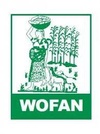Icon of Hope - Mastercard Foundation

Status
closed
Period
2020 - 2022

In Partnership With
Women Farmers Advancement Empowerment Foundation (WOFAN) was formed in 1993 in response to the plight of rural women in Northern Nigeria, who are economically disadvantaged and rely on local/ Indigenous technology. WOFAN aims to improve and promote the economic, social, and political empowerment of rural women and young people to transform agriculture into business, and to develop positive linkages across all the agricultural value chains including access to finance and technical know-how. Over the years, WOFAN has supported thousands of households to scale and diversify their income. WOFAN has also constructed and supported hundreds of water and sanitation facilities in schools and Islamiyah centres across Northern Nigeria to support rural access to safe drinking water and education, and has improved the livelihoods of the girl-child and women.

Target Impact
Help 30,000 smallholder farmers and processors that have been negatively impacted by the COVID-19 pandemic get access to resources and technology.
-
Equipment
Handheld labour-saving equipment has decreased drudgery and reduced harvest time.
-
6 hours
Reduced harvest time from 72 hours to 6 hours per hectare
-
+120%
Enhanced output by 120%, and decreased post-harvest losses by more than 65%
-
Community
Mini community centres provided microprocessing equipment, enhancing accessibility, processing capacity, and quality while also raising the average household income.
-
Farm waste
Conversion of farm waste to briquettes and compost was incorporated, improving feedstock for animals, reducing tree felling for firewood, reduced greenhouse emissions.
-
Advocating
The project also advocated for girl child education, water and sanitation, VVF, and women gained agency, voice and respect from their husbands.

Partnership Focus
Improve livelihoods and sustainable financing for participating individuals, households, and communities.
Improve technological solutions to farming and post-harvest processing.
Increase the agency and voice for young people, especially women.
Create and build community cohesion and outreach.





